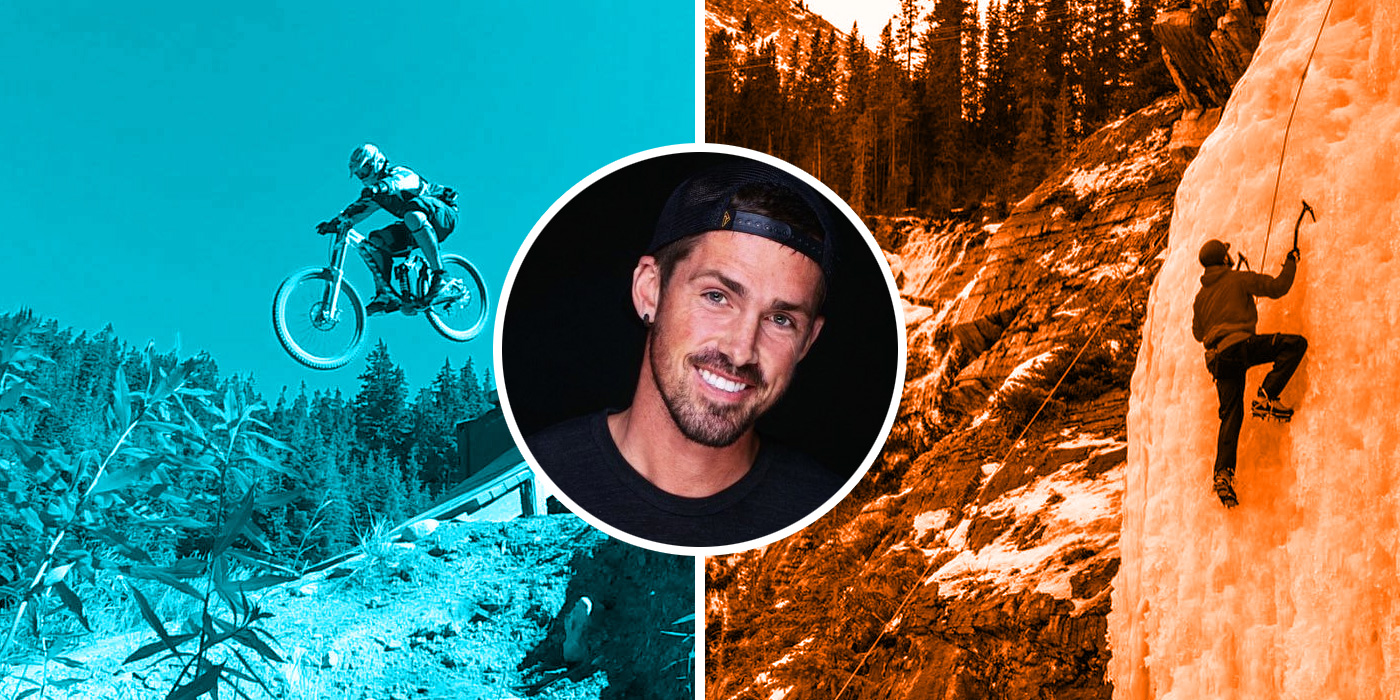‘Tornado Hunters’ Star Ricky Forbes Wants You to Become Canada’s Next Great Explorer
For some men, a summer of exploring doesn’t just mean discovering a new patio or finding out if the boss allows shorts at the office — it means getting dirty, risking some skin, and pushing the limits. Ricky Forbes, the daredevilish co-host of CMT Canada’s Tornado Hunters, is exactly that kind of guy.
After a few stifling years in finance, Forbes — who grew up riding dirt bikes and snowboarding in rural Saskatchewan — ditched the rat race in favour of driving directly into Canada’s nastiest weather on television, a gig that allows him to spend his days mountain biking, hang-gliding, and pushing his own limits.
This summer, Forbes has partnered with Woods Canada to find Canada’s Greatest Explorer. The cross-country competition will pit 12 of Canada’s most highly-skilled outdoor enthusiasts against the elements and each other for the coveted title and $25,000.
Think you’ve got what it takes? Before you send in your entry, check out Forbes’ pointers for chasing adrenaline and trying new extreme sports while keeping risk at a minimum.
Knowledge is power
“I ask buddies who are experts in that industry and I do research,” said Forbes. “When there’s an activity you know inside and out, you know how to mitigate that risk.”
As a long-time snowboarder, he knows what he’s up against. “I’ve done my avalanche course, so I know the dangers, even a few days ahead, I know where the avalanche risks are going to be.”
But with new sports, knowing is half the battle.
Get Physical
To be prepared, Forbes spends an hour or two dedicated to fitness, whether he’s hitting the weights or going for a run.
“I like getting into a gym and targeting different muscle groups,” said Forbes, “but also real world experience, if I’ve got mountain-climbing coming up, I’ll go train at a climbing centre.”
There’s no catch-all routine for an extreme athlete, but maintaining a base level of fitness comes in handy whether he’s jumping out a plane, climbing ice walls, or bombing down singletrack.
Gear Up
“When I’m trying out a new sport I rent gear, I go and speak with somebody at the shop and ask what the best gear that a person should be using. I want to have the best experience right off the bat,” said Forbes.
For newbies, the right gear can make or break the experience, among other things.
Go with Pros
“Go with experts,” said Forbes, “get a guide. It can be pricier sometimes, for a ski coach it’ll cost you $50 an hour, and an ice-climbing guide could cost you $300 for the day, but you’re going to go out there, you’re going be safe, and you’re going to have a full day of the activity.”
Otherwise, it can be a pretty tough decision to choose whether or not to pursue a sport if you haven’t had the full experience.
Famous Last Words
“You’re going to be okay. Other people have done this and they’re okay, so you’re going to be okay too.”
That’s what Forbes reminds himself every time he tries a new extreme sport.
“When I’m up there and I feel that fear, that’s one of the challenges that I love,” said Forbes on hang-gliding. “You have to breathe through that fear. It feels like fear is punching you in the face and every ounce of your body wants to stop, but you can’t stop when you’re hang-gliding.”
Next steps
For budding thrill-seekers, Forbes highly recommends skydiving. “It’s not too expensive, and you can go tandem so someone else holds the reins and they can take care of you,” said Forbes. “It’s a very safe sport, for what it is.”
But if you’re looking to stay closer to the ground, downhill mountain biking is a close second. “Whether it’s riding down a trail or downhill mountain biking, you get to cover a lot of ground and it’s very different from running or hiking.”










